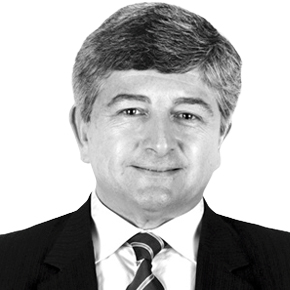
Prevention of money laundering and the financing of terrorism in Uruguay
According to Law Nº 19.574, certain entities are bound to report unusual or suspicious operations to the Information and Financial Analysis Unit of the Central Bank of Uruguay (BCU) and must comply with and implement policies and procedures aimed at preventing money laundering and the financing of terrorism (from now on “money laundering risk”).
In future, entities in Uruguay are obliged to adopt measures designed to prevent money laundering. These entities are:
- operators and direct and indirect users of tax-free zones
- casinos
- real estate businesses
- lawyers
- notaries
- accountants
- auctioneers
- merchants of antiques and artworks
- suppliers of certain services (setting up companies, directors’ duties, etc.)
- non-profit organisations
- cross-border transport of valuables
Agents of the financial system are not included in this law, since they already have their own regulations issued by BCU.
 We can help you to develop a system designed to eliminate money laundering risks.
We can help you to develop a system designed to eliminate money laundering risks.
The entities mentioned above must carry out money laundering risk evaluation as well as adopt the measures required to identify and evaluate them. As a result of this analysis, the level of risk will be identified as low, medium or high. The money laundering risk must be managed by those entities and they must develop procedures and policies that enable the prevention, detection and reporting of unusual or suspicious operations.
The application of these procedures of due diligence must be carried out for new clients as well as for existing ones. In the case of prospective clients, these procedures must be executed before accepting the client, and if such procedures cannot be applied, then the commercial relationship cannot take place.
Due diligence measures must be proportional to the risk identified. If the risk is high, measures will be more extensive. If the risk is low, measures will be simpler. These measures may include:
- identifying the client, the person who acts in behalf of the client and the ultimate beneficiary
- determining the purpose of the commercial relationship and the nature of the business and
- obtaining a reasonable explanation of the licit origin of the funds managed in the operation.
Also, it is necessary to designate a compliance officer whose duties are:
- the periodical review the policies, procedures and controls put into effect
- the presentation of measures to mitigate the risks
- the proposal of alert mechanisms
- collaboration in the design of reports of suspicious operations
- co-ordination of the necessary training and
- verification of the compliance and results of the implementation.
Contact us:
Marcelo Caiafa
ECOVIS Uruguay
José Ellauri 468 – C.P. 11.30011300 Montevideo
Phone: +598 2712 4968
www.ecovis.com/uruguay

